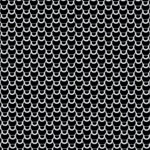
Dungen
Tio Bitar
(Kemado; 2007)
By Joel Elliott | 20 April 2007
The associative sounds of Dungen seem to nest at a specific point during the late ’60: a post-Sgt. Pepper’s (1967) world where the term “psychedelic” was applied pretty much across the board at the same time that Zeppelin and Hendrix were laying the foundation for seventies hard rock. Back then hard rock was still called “acid rock”; it was still tied to the free-love origins of the San Francisco/British Invasion II sound. To late ’60s pop fans—even with the flutes and keyboards—Dungen probably would have seemed fairly heavy with their thundering drum fills and wah-drenched guitar.
Most bands today who aim for such a visceral assault use more contemporary wall-of-sound production; Dungen is looking back to both strands of late ’60s innovation to achieve the same thing, applying the blistering sonics of Hendrix, and the psychedelic pop that defined the declining Summer of Love in equal measure. This is a very real dichotomy on Tio Bitar, the follow up to 2004’s widely-acclaimed Ta Det Lungt. From the perspective of the 21st century this feels like pop music, and yet Dungen are obviously rocking out with everything they have—which, I’d expect, is a lot of vintage equipment. The effects and production don’t even hint at technology made after 1969, and this gives Tio Bitar the feeling of a lost artifact from that era.
In general, Tio Bitar is tighter than its predecessor, less prone to extended wankery. If that makes it a bit less adventurous, fine; Dungen still interpolate their concise pop songs with sudden shifts in timing and prog-gleaned arrangements—for example, the descending motif in “Familj” which plays out as a call-and-response between the instruments. At times, Dungen alternate abruptly between a raw sonic assault and their more ethereal atmospherics; the instrumental intro is a good example, where single, drawn-out bended guitar notes suddenly pull back at the end to make way for a lightly-reverbed flute melody. Dungen possess a lot more skill with instrumentation than a lot of bands who lean heavily on guitar effects, and while they will ride single notes or relatively simple progressions it’s often to suddenly introduce more complex harmonies or shifts in tempo.
It feels frustrating to speak so abstractly about a band whose effect on the listener (or at least this one) is a lot more intuitive and organic than I can describe. They certainly don’t leave the non-Swedish speaker much to draw from lyrically, although the fact that I once again find myself idiotically singing these songs out loud with only a vague resemblance to the actual syllables I’m hearing says a lot about how strong these songs are. I do find myself having a problem similar to the one critics have when discussing bands like Sonic Youth: their noise is far more distinct and controlled than various metaphors for distortion or feedback will accurately describe, and the pop end of it is far too intuitive to assign a specific kind of meaning to it. So, like, Dungen sounds like Dungen. Which is especially true here if you’ve already heard Ta Det Lungt. If this album is less immediately impressive than its predecessor it’s because apart from tightening their arrangements the sound is still exactly what you expect. That doesn’t mean it’s a disappointment by any means; one can’t really fault a band as distinct (and likely unconcerned with current trends) as Dungen for sticking to what they do best.





